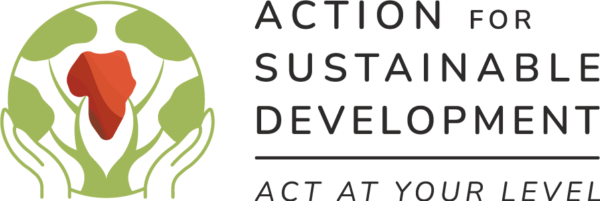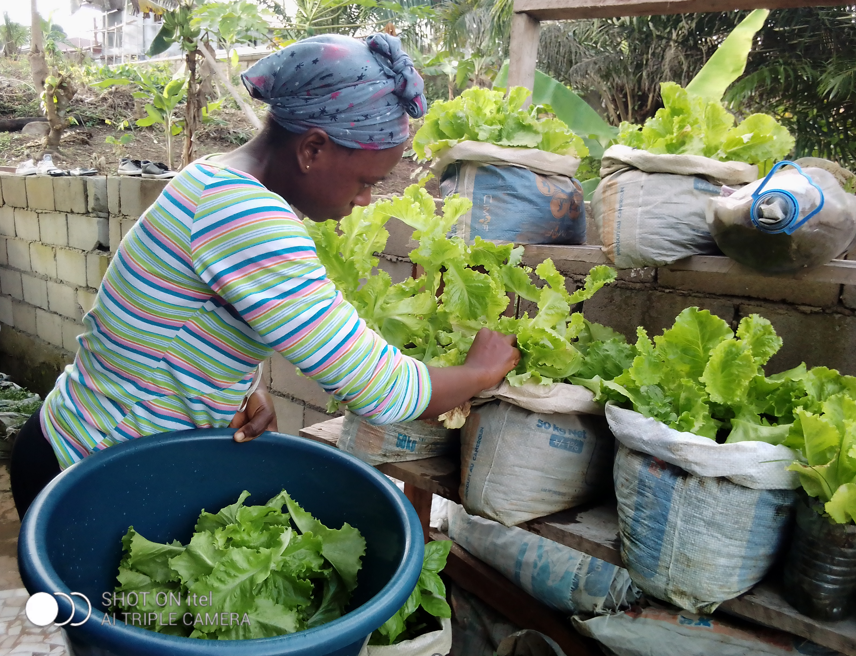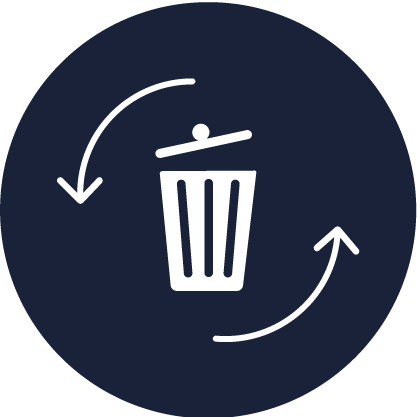Sustainable Management of Household Waste for Healthy Production in Urban Agriculture
Action for Sustainable Development is a non-profit association incorporated under Cameroonian law. We aim to eradicate poverty through sustainable practices.


Overview of the project
Kribi is a seaside town covering some 14,470 hectares, with a cosmopolitan population estimated at over 40,000. Although Kribi is a tourist town, it, like other towns in Cameroon, is faced with the problem of waste management. The main producers of waste are households and markets. The latter produce huge quantities of biodegradable waste that is not recycled. This organic waste is mixed with non-biodegradable waste and dumped either in rubbish bins or in illegal dumps (crossroads, gullies, street corners, etc.), and another part ends up in the Atlantic Ocean, thus impacting on ecotourism, the cleanliness of the city and the health of the population. While it’s true that it’s up to the town council and Hysacam to take care of waste collection, the fact remains that they seem to be overwhelmed. Over a period of several months, the project set out to help local people gradually change their behaviour by sorting their rubbish, composting biodegradable waste and, finally, practising urban agriculture using compost produced by the people themselves. Urban agriculture is a concept that is being promoted all over the world, as it allows people to adapt to health crises such as covid 19, which requires people to travel less and to frequent public places such as markets. Urban agriculture is also a way of dealing with the lack of agricultural space in cities. Some women and young people are often faced with the unavailability of organic fertiliser or compost when they want to garden, forcing them to use the only alternative, chemical fertiliser.
Helping people to gradually change their behaviour by sorting their rubbish, composting biodegradable waste and replacing chemical fertilisers with compost for urban agriculture.
Ongoing research
Projet toujours en cours
250 pupils understood the importance of separating waste at source (biodegradable/non-biodegradable)
-More than 3,000 kg of biodegradable waste and 2,000 plastic bags collected
-1,000 kg of compost produced from the waste collected
-10 households helped to produce compost using the 10 mini composters installed in their homes
-500 students and 30 households trained in urban agriculture
-20 households have set up vegetable gardens
-A 500 square metre demonstration plot has been set up with a range of crops (tomatoes, carrots, peppers, lettuce, cabbage, okra, etc.) using used plastic bags collected during previous campaigns.
In environmental terms, composting helps to improve the quality of our living environment, reducing litter and refuse dumping in waterways, gutters, wastelands and on the streets. Contributes to achieving MDG 2 (food security), MDG 12 (sustainable consumption and production) and MDG 13 (combating climate change).
In economic terms, such initiatives reduce the amounts invested by public authorities and communities in waste recovery and landfill.
In social terms, the number of trips to and from waste collection centres is reduced, and the burden is lessened for children and women. No need to invest in fertilisers. Contributes to the circular economy and helps to ensure a healthy diet.
This initiative was submitted in response to a call for projects for the locality of Kribi 2nd. It was finally supported by our partner Gef-SGP-PNUD Cameroun. The part implemented in Yaoundé is funded by the association itself.
organisation
Action for Sustainable Development is a non-profit association under Cameroonian law. We aim to eradicate poverty through sustainable practices. Our vision is to help maintain a stable balance between economic profitability, nature conservation and social equity in the management of natural resources. The association’s main mission is to promote sustainable development through a participatory approach. Our areas of action are agro-ecology, sustainable management of natural resources, forest governance, and water, hygiene and sanitation. Among our other activities, we have a number of initiatives focusing on composting waste and urban agriculture in the towns of Kribi and Yaoundé.





